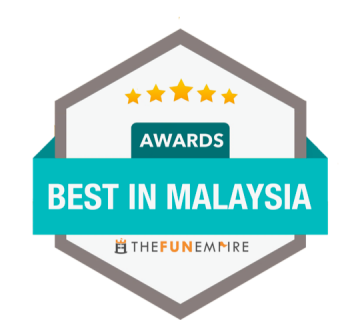11 Candidate Sourcing Strategies to Find Top Talent in Malaysia
Malaysia, known for its rich cultural heritage and thriving economy, offers a unique and vibrant lifestyle for both residents and expatriates. Let's delve into some key aspects of life in Malaysia, including costs, earnings, and the notable qualities of its people.
(a) Prices in Malaysia
The cost of living in Malaysia is relatively affordable compared to other developed countries. Groceries, dining out, and transportation are generally well-priced, enabling individuals to enjoy a comfortable lifestyle without overspending. Housing costs vary by location, with urban areas like Kuala Lumpur having higher rental and property prices compared to smaller towns.
(b) Earnings in Malaysia
Earnings in Malaysia differ based on the industry, job level, and qualifications. The country provides competitive salaries, particularly in sectors such as technology, finance, and engineering. Expatriates with in-demand skills can often secure attractive compensation packages and benefits. However, it is crucial to consider the cost of living and local market conditions to assess overall financial viability.
(c) The People of Malaysia
Malaysians are known for their warm hospitality, friendliness, and multicultural outlook. They take pride in their diverse heritage, which includes Malay, Chinese, Indian, and indigenous influences. This multiculturalism enriches the nation's social fabric, promoting mutual respect and understanding. Malaysians are also recognized for their strong sense of community and robust work ethic.
(d) Business and Work Culture in Malaysia
In the workplace, Malaysians value professionalism, teamwork, and collaboration. They appreciate clear communication and a respectful environment. Building strong relationships with colleagues is important, and socializing outside of work is common to foster camaraderie and strengthen team dynamics.
Malaysia's business culture is characterized by a hierarchical structure, where seniority and rank are important. Despite this, open dialogue and the exchange of ideas are encouraged. Malaysians place a high value on face-saving and maintaining harmonious relationships, which can sometimes lead to indirect communication or avoiding confrontations.
(a) Prices in Malaysia
The cost of living in Malaysia is relatively affordable compared to other developed countries. Groceries, dining out, and transportation are generally well-priced, enabling individuals to enjoy a comfortable lifestyle without overspending. Housing costs vary by location, with urban areas like Kuala Lumpur having higher rental and property prices compared to smaller towns.
(b) Earnings in Malaysia
Earnings in Malaysia differ based on the industry, job level, and qualifications. The country provides competitive salaries, particularly in sectors such as technology, finance, and engineering. Expatriates with in-demand skills can often secure attractive compensation packages and benefits. However, it is crucial to consider the cost of living and local market conditions to assess overall financial viability.
(c) The People of Malaysia
Malaysians are known for their warm hospitality, friendliness, and multicultural outlook. They take pride in their diverse heritage, which includes Malay, Chinese, Indian, and indigenous influences. This multiculturalism enriches the nation's social fabric, promoting mutual respect and understanding. Malaysians are also recognized for their strong sense of community and robust work ethic.
(d) Business and Work Culture in Malaysia
In the workplace, Malaysians value professionalism, teamwork, and collaboration. They appreciate clear communication and a respectful environment. Building strong relationships with colleagues is important, and socializing outside of work is common to foster camaraderie and strengthen team dynamics.
Malaysia's business culture is characterized by a hierarchical structure, where seniority and rank are important. Despite this, open dialogue and the exchange of ideas are encouraged. Malaysians place a high value on face-saving and maintaining harmonious relationships, which can sometimes lead to indirect communication or avoiding confrontations.
Candidate Sourcing Strategies to Build Your Talent Pipeline in Malaysia
Attracting good talent is crucial for the future of your organization in Malaysia. By developing a talent pipeline, you enhance your chances of hiring the best candidates for future growth. The right hire can lead to lower employee turnover and higher productivity, while the wrong hire can damage your company culture and waste resources on training someone who won't stay.
This challenge is complex. Your recruitment team needs to engage candidates effectively while streamlining the process to target the right professionals for each position.
In building your talent pipeline, it's essential to develop a comprehensive recruitment strategy that targets the right candidates. This can include online recruitment initiatives like enhancing your career page and positioning your company as an attractive workplace through online recruitment channels. Offline recruitment methods are also important, such as encouraging employee referrals and attending events to meet candidates in person.
This challenge is complex. Your recruitment team needs to engage candidates effectively while streamlining the process to target the right professionals for each position.
In building your talent pipeline, it's essential to develop a comprehensive recruitment strategy that targets the right candidates. This can include online recruitment initiatives like enhancing your career page and positioning your company as an attractive workplace through online recruitment channels. Offline recruitment methods are also important, such as encouraging employee referrals and attending events to meet candidates in person.
What is the difference between Talent Pool and Talent Pipeline?
What's the difference between a talent pipeline and a talent pool? A talent pool is not vetted, while a talent pipeline includes candidates who have been vetted and are immediately considered for positions.
Your talent pool includes contact information from various sources, like resumes from past applicants, job fair contacts, and other sources. After vetting these candidates and removing those who are unqualified, they move to your talent pipeline for consideration. This helps you target ideal candidates more efficiently and build productive relationships.
Your talent pool includes contact information from various sources, like resumes from past applicants, job fair contacts, and other sources. After vetting these candidates and removing those who are unqualified, they move to your talent pipeline for consideration. This helps you target ideal candidates more efficiently and build productive relationships.
What is Candidate Sourcing?
Talent sourcing involves actively searching for qualified candidates. Through this recruitment process, your team engages with prospective candidates, moving them into your talent pipeline for current and future positions. Outreach examples include building an employer brand to highlight the benefits of working with your company.
Only 30% of the workforce is actively seeking new opportunities, but 90% are open to discussions. Talent recruiting attracts many applicants, including passive and active candidates who wouldn't know about your company or openings without your candidate sourcing efforts, such as recruitment marketing. This is part of your talent pipeline management strategy to find the right candidates.
Only 30% of the workforce is actively seeking new opportunities, but 90% are open to discussions. Talent recruiting attracts many applicants, including passive and active candidates who wouldn't know about your company or openings without your candidate sourcing efforts, such as recruitment marketing. This is part of your talent pipeline management strategy to find the right candidates.
11 Candidate Sourcing Strategies:
How do you find good talent? These strategies will help you fill your funnel with qualified candidates:
1. Align with Hiring Managers: Collaborate closely with hiring managers throughout the sourcing process to define what a strong candidate looks like and to refine your search based on their feedback.
2. Leverage Your ATS: Re-engage with past candidates from your Applicant Tracking System (ATS) to maximize previous recruitment efforts and keep the lines of communication open.
3. Diversify Online Channels: Explore various online recruitment channels beyond the usual ones to find unique candidate profiles and increase your outreach success.
4. Use Offline Recruitment Methods: Attend industry events and encourage employee referrals to meet candidates face-to-face and build personal connections.
5. Utilize Employee Networks: Tap into your employees' networks to expand your talent pool and increase response rates through warm introductions.
6. Proactively Source for Future Roles: Build candidate personas based on your business growth plans and proactively source candidates for future positions.
7. Perfect Your Outreach Messages: Craft personalized, candidate-focused messages that address their goals and interests to improve engagement.
8. Build a Strong Employer Brand: Enhance your employer brand through positive reviews, storytelling, and collaboration with marketing to attract top talent.
9. Follow Up with Non-responders: Keep in touch with candidates who didn't initially respond and maintain regular communication to stay top of mind.
10. Use the Right Tools: Implement recruiting tools to streamline your recruiting process, organize your approach, and focus on relationship-building.
11. Engage the Right Recruitment Agency: Recruitment agencies excel in sourcing qualified candidates by leveraging their broad network, expertise of seasoned recruitment consultants, and cutting-edge recruitment technology. Through these resources and tools, recruitment agency can efficiently pinpoint and engage candidates possessing the essential skills that match a company's requirements.
1. Align with Hiring Managers: Collaborate closely with hiring managers throughout the sourcing process to define what a strong candidate looks like and to refine your search based on their feedback.
2. Leverage Your ATS: Re-engage with past candidates from your Applicant Tracking System (ATS) to maximize previous recruitment efforts and keep the lines of communication open.
3. Diversify Online Channels: Explore various online recruitment channels beyond the usual ones to find unique candidate profiles and increase your outreach success.
4. Use Offline Recruitment Methods: Attend industry events and encourage employee referrals to meet candidates face-to-face and build personal connections.
5. Utilize Employee Networks: Tap into your employees' networks to expand your talent pool and increase response rates through warm introductions.
6. Proactively Source for Future Roles: Build candidate personas based on your business growth plans and proactively source candidates for future positions.
7. Perfect Your Outreach Messages: Craft personalized, candidate-focused messages that address their goals and interests to improve engagement.
8. Build a Strong Employer Brand: Enhance your employer brand through positive reviews, storytelling, and collaboration with marketing to attract top talent.
9. Follow Up with Non-responders: Keep in touch with candidates who didn't initially respond and maintain regular communication to stay top of mind.
10. Use the Right Tools: Implement recruiting tools to streamline your recruiting process, organize your approach, and focus on relationship-building.
11. Engage the Right Recruitment Agency: Recruitment agencies excel in sourcing qualified candidates by leveraging their broad network, expertise of seasoned recruitment consultants, and cutting-edge recruitment technology. Through these resources and tools, recruitment agency can efficiently pinpoint and engage candidates possessing the essential skills that match a company's requirements.
Conclusion
Winning top talent requires a strategic approach. These candidate sourcing strategies will help you build a robust hiring pipeline, ensuring you have the best candidates to choose from for your team.
If you need help from the recruitment agency in Malaysia, you can check out this article to explore some of the recommended recruitment agencies in Malaysia: recruitment agency Malaysia
If you need help from the recruitment agency in Malaysia, you can check out this article to explore some of the recommended recruitment agencies in Malaysia: recruitment agency Malaysia
Looking Ahead



